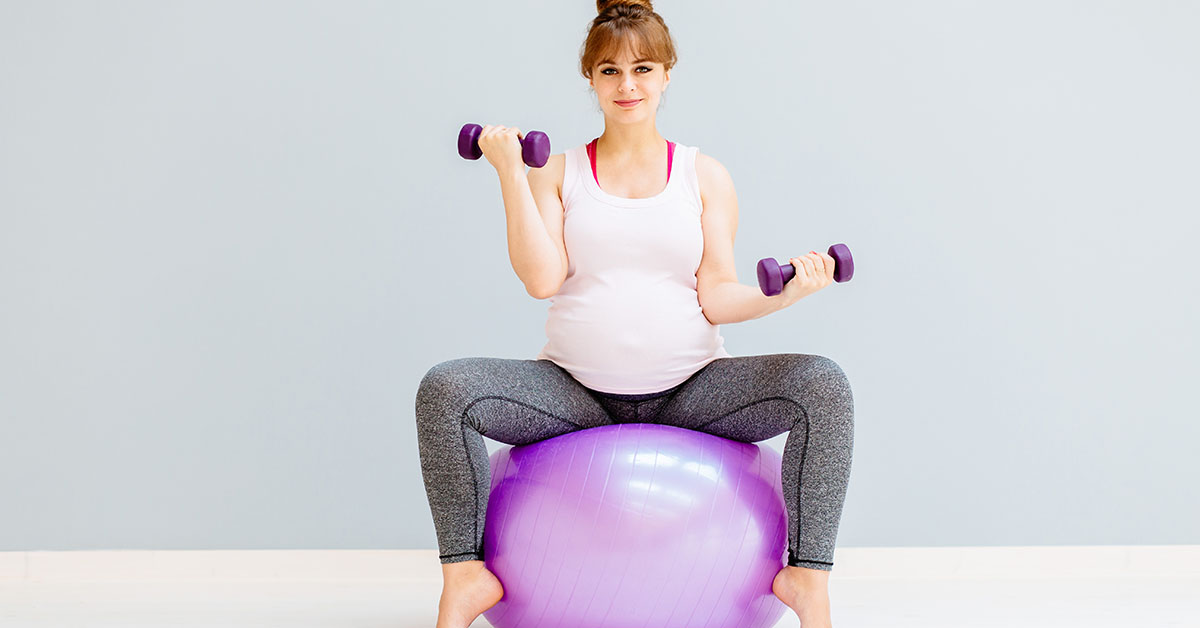 Kernodle Clinic - A DukeMedicine PRACTICE
Kernodle Clinic - A DukeMedicine PRACTICE
- Burlington 336-538-1234
- Mebane 919-563-2500
- Elon Family 336-538-2314
- Elon Pediatrics 336-538-2416
Prenatal Workout Guide

As your belly gets bigger and your clothes get tighter, you may wonder, “Is it safe to exercise?”. While the answer is usually that it’s a good idea to exercise in safe ways, it’s important to consult with your healthcare provider first because every woman is different. However, if your doctor approves, here are a few prenatal workout tips to get you started.
Will exercise affect my baby?
If you have a healthy pregnancy, exercise will not hurt your baby, but you may find that you will get tired faster.
Why should I exercise?
You might begin to feel really uncomfortable and not just from tight clothes, but from constipation, back pain and swelling in your legs, ankles, and feet. Regular prenatal workouts can help ease your discomfort and help you gain the right amount of weight. In addition, it’ll help you manage your stress and sleep better at night. Most importantly, it’ll reduce your risk of complications like gestational diabetes, preeclampsia, premature birth, and cesarean birth.
How much should I exercise?
According to the American College of Obstetrics and Gynecology (ACOG), healthy pregnant women need at least 2.5 hours of moderate-intensity cardio each week. Try making your prenatal workout at least 30 minutes a day or breaking it up to 10 minutes three times a day. Make sure you’re repeatedly moving your large muscles (i.e. arms and legs) to the point of increasing your heart rate and breaking a sweat. A good example of this is a brisk walk where you can still talk normally. If you can’t talk normally, you’re working too hard.
What activities are safe during pregnancy?
If your provider says it’s OK to exercise, try picking exercises you enjoy. After you choose an activity, remember to drink plenty of water and listen to your body at all times. Here are a few safe prenatal activities.
- Walking is always a great place to start. Change up your routine by walking in your neighborhood, local parks or during your lunch breaks.
- Swimming and water aerobics helps support the weight of your growing baby and alleviates lower back pain. Not to mention it’s easy on your joints.
- Stationary bikes are safer than a regular bike since you’re less likely to fall as your tummy gets bigger.
- Yoga and pilates are rejuvenating low-impact floor exercises. Check for gyms and centers that offer prenatal classes.
- Strength training will help you build muscles and keep your bones strong. Be sure to ask your doctor how much you can lift.
- Be creative and find new ways to be active in your everyday life, like low-impact yard work, taking the stairs or parking further to increase your steps.
What should I avoid?
Avoid activities where there is a risk of falling or being hit in the stomach like soccer, surfing, and skiing. Avoid activities that put pressure on your uterus like sit-ups and laying on your back. Avoid activities that increase your body temperature like hot yoga, hot tubs or exercising outside on a hot day to avoid hyperthermia.
When should I stop exercising?
Stop and call your provider if you are experiencing any of these signs or symptoms:
- Vaginal bleeding or leaking.
- Chest pains, difficulty breathing or rapid heartbeat
- Feeling dizzy or faint
- Headaches
- Muscle weakness, trouble walking or pain/swelling in lower extremities
- Regular and painful contractions
- Your baby stops moving
Does pregnancy change how I exercise?
Absolutely. As your belly grows, your center of gravity changes making balancing more difficult. You’ll begin to experience more internal pressure on your organs making breathing more difficult. You’ll find your heart rate is faster and you’re sweating sooner. This is ok. Your body is working harder to get nutrients and oxygen to your baby. Since your body is working harder, you’ll find your energy is decreasing. While exercising is good for you, take care of yourself and be mindful of the changes happening in your body.
Talk to Your OB/GYN
The physicians, nurses, and medical staff at Kernodle OB/GYN offer a comprehensive list of gynecological and obstetric services to the women in Burlington and Mebane, NC. If you have questions or concerns about prenatal workout guidelines, call us at (336) 538-2367 to make an appointment.
Click here to read the Duke Health COVID-19 update for information on the steps we’re taking to keep you safe.
